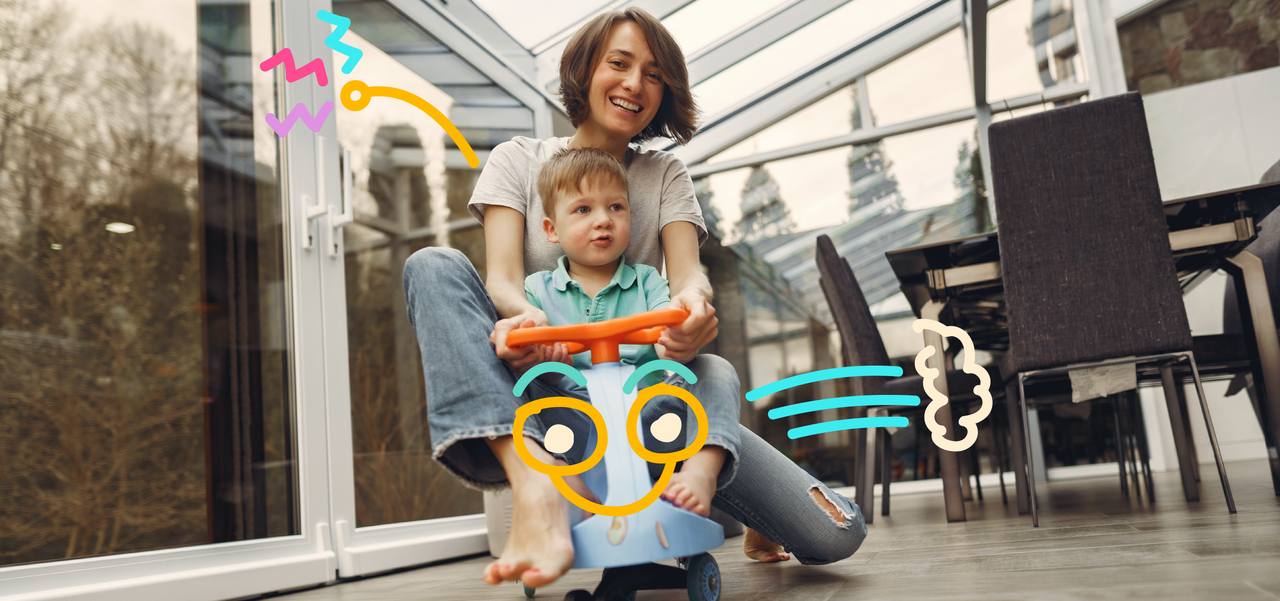
You pick up your little one from child care, their educators tell you what a great day they’ve had, and then you get home and your child turns into an angry, emotional ball of fury. What just happened?
Welcome to the world of the post child care meltdown. First of all, breathe. This is completely normal.
Your child has been on their best behaviour for their educators all day long, so naturally when they get home they feel relaxed enough to tell you how they really feel.
Emily is an early years teacher and has sympathy for the children who have been listening, following directions, being kind, and on the go all day.
‘It’s no wonder they’re a hot mess when they get home,’ she explains. ‘They’ve been so busy all day doing the right thing. They just need to decompress.’
If you dare to give them the wrong coloured cup, or ask them to move their bag out of the hallway, prepare to feel the wrath of their tiny temper.
As parents, we are our children’s ‘safe space’, which is why they freak out for you rather than for their teachers or carers. They are securely attached to you as a parent, and feel that their emotions are welcome (good or bad) and that you will respect them and give them the space they need.
But if you’ve been at work all day, or looking after younger children, your own emotions can be on edge so this can be a tricky time for everyone.
The good news is there are ways to try to keep the meltdowns to a minimum, or at least lessen their impact on the family.
1. Have snacks ready
Little ones often only eat small meals and snacks throughout the day. Having a nutritious snack on hand (give it to them in the car on the way home if you find that helps) can be so beneficial for balancing their blood sugar. Think cut up apples, crackers, watermelon, or a muffin.
2. Don’t over-schedule them
While there are often other jobs to be done, if you can help it try not to schedule anything for the family after you’ve successfully picked them up from child care.
Children find transitions tricky, so after their day at child care they often just want to get home to their room, their toys, and their dinner.
Pop them in a trolley to do a quick grocery run and you might find you are both wailing together in the cereal aisle.
A quick pick up of your online shopping via click and collect – maybe. A visit to the kitchen shop to look at tiles – no.
Susan is a mother of two boys, aged 2 and 4. ‘When my boys have had a couple of consecutive days of child care, they’re just super tired,’ she shares.
‘I try not to schedule in anything after they’ve been picked up as I know they just want to go home for cuddles with me, some dinner, a quiet play, then bed.
It’s when I’ve picked them up and taken them to a friend’s house for a BBQ that they just have complete meltdowns. It’s just too much over-stimulation for them.’
3. Plan for some quiet time
You’ve been apart for several hours, so your little one just wants to reconnect. That might mean plonking down on the floor to do a puzzle together, reading a book on the sofa, or watering the plants together in the garden.
This is the time when your child can open up about their day. Did something funny happen? Was someone mean to them? Did they kick a goal in soccer?
4. Delegate the dinner
On your child care days, try to find a way to organise dinner in advance so that you don’t have to try and cook a meal when the children want your attention.
This might mean putting the slow cooker on in the morning, or defrosting a pre-cooked meal from the freezer on these nights. Child care days are not the days for preparing a time-consuming lasagne or standing over a pan of risotto. Keep it simple.
5. Put down the electronics
Now isn’t a great time for you to catch up on your emails or texts, as your child will just see this as your attention being taken away from them.
Try to really focus on them and this will help reduce their sense of disconnection.
If the meltdown happens…
It’s not the end of the world. Sometimes your child will just want to be on their own for a bit. They may want to be held, or to know that you’re ready for a cuddle when they are finished stomping around the kitchen.
Staying calm (as hard as this may be) is the best way to let them know that their feelings are heard and respected.
The good news is that this phase doesn’t tend to last too long. Soon you’ll find that your child copes better with the transition from school to home, and these tantrums will be a thing of the past.